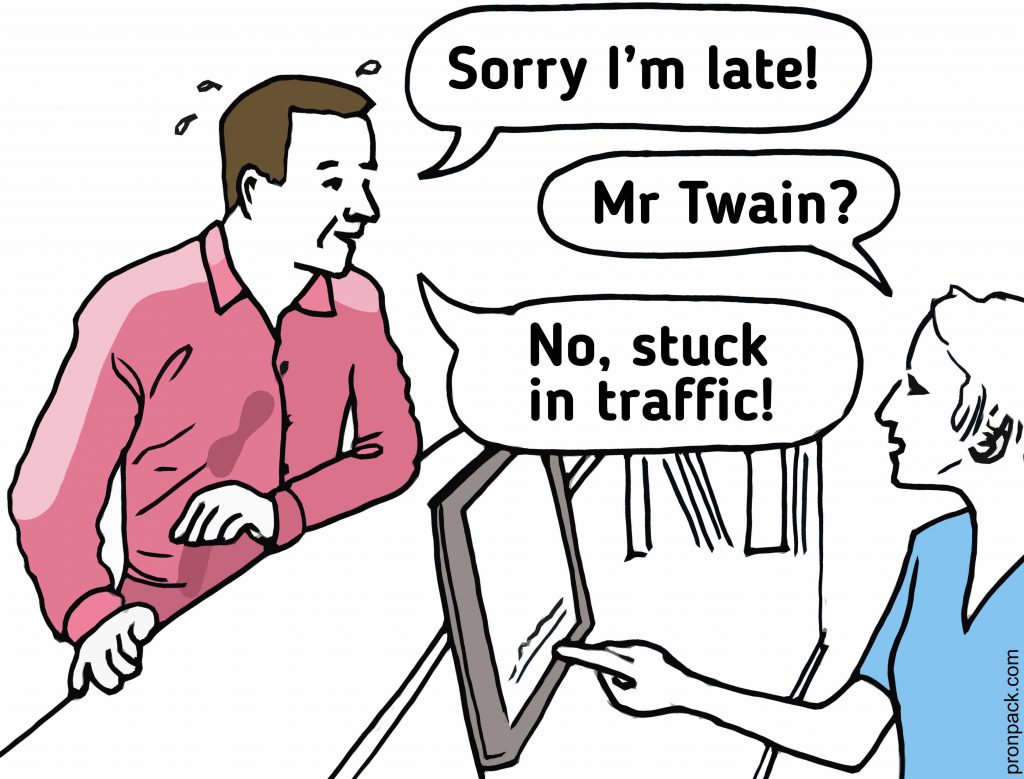 A man apologises for arriving late for his appointment. The receptionist, looking at the list of expected clients, guesses that this is Mr Twain. The man, probably not Mr Twain in fact, still has his late arrival on his mind and hears this as “Missed a train”. How was this misunderstanding possible?
A man apologises for arriving late for his appointment. The receptionist, looking at the list of expected clients, guesses that this is Mr Twain. The man, probably not Mr Twain in fact, still has his late arrival on his mind and hears this as “Missed a train”. How was this misunderstanding possible?
We may suppose that the receptionist speaks a version of English where an r is not pronounced after a vowel (eg England, Australia, New Zealand) so that “Mr” sounds like “Mista” or “Missed a”. But what about “Twain” for “train”? Well, the /r/ is possibly one of the most variable phonemes in the language, with an enormous range of pronunciations across different accents, and even from speaker to speaker. Some speakers pronounce it as something almost resembling a /w/ – possibly as many as 10% in England. There is no evidence that the receptionist is among this 10%, but evidently the man thinks she is!




 A man apologises for arriving late for his appointment. The receptionist, looking at the list of expected clients, guesses that this is Mr Twain. The man, probably not Mr Twain in fact, still has his late arrival on his mind and hears this as “Missed a train”. How was this misunderstanding possible?
A man apologises for arriving late for his appointment. The receptionist, looking at the list of expected clients, guesses that this is Mr Twain. The man, probably not Mr Twain in fact, still has his late arrival on his mind and hears this as “Missed a train”. How was this misunderstanding possible?